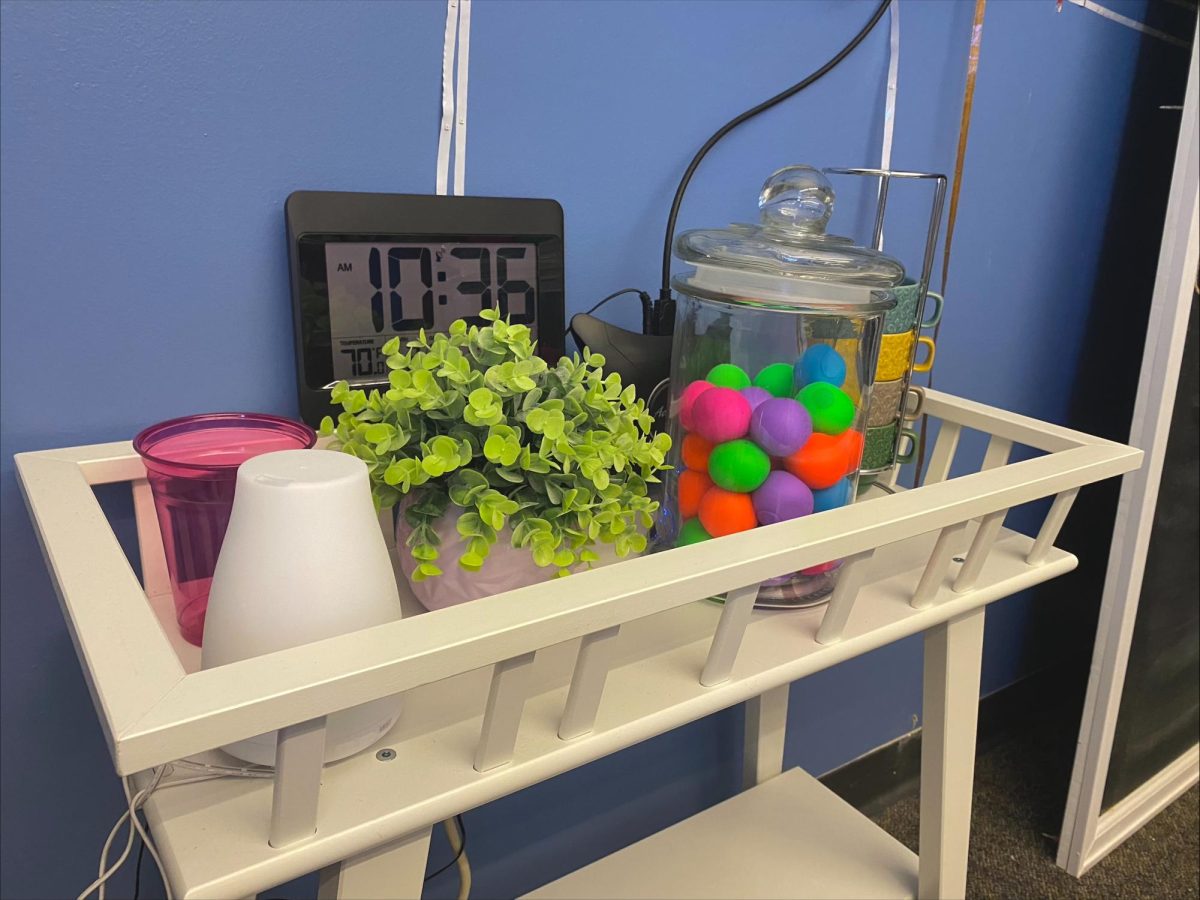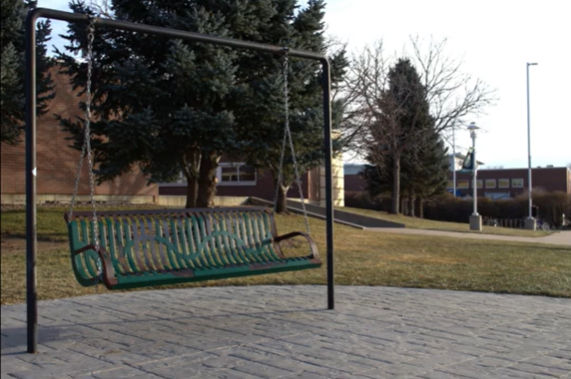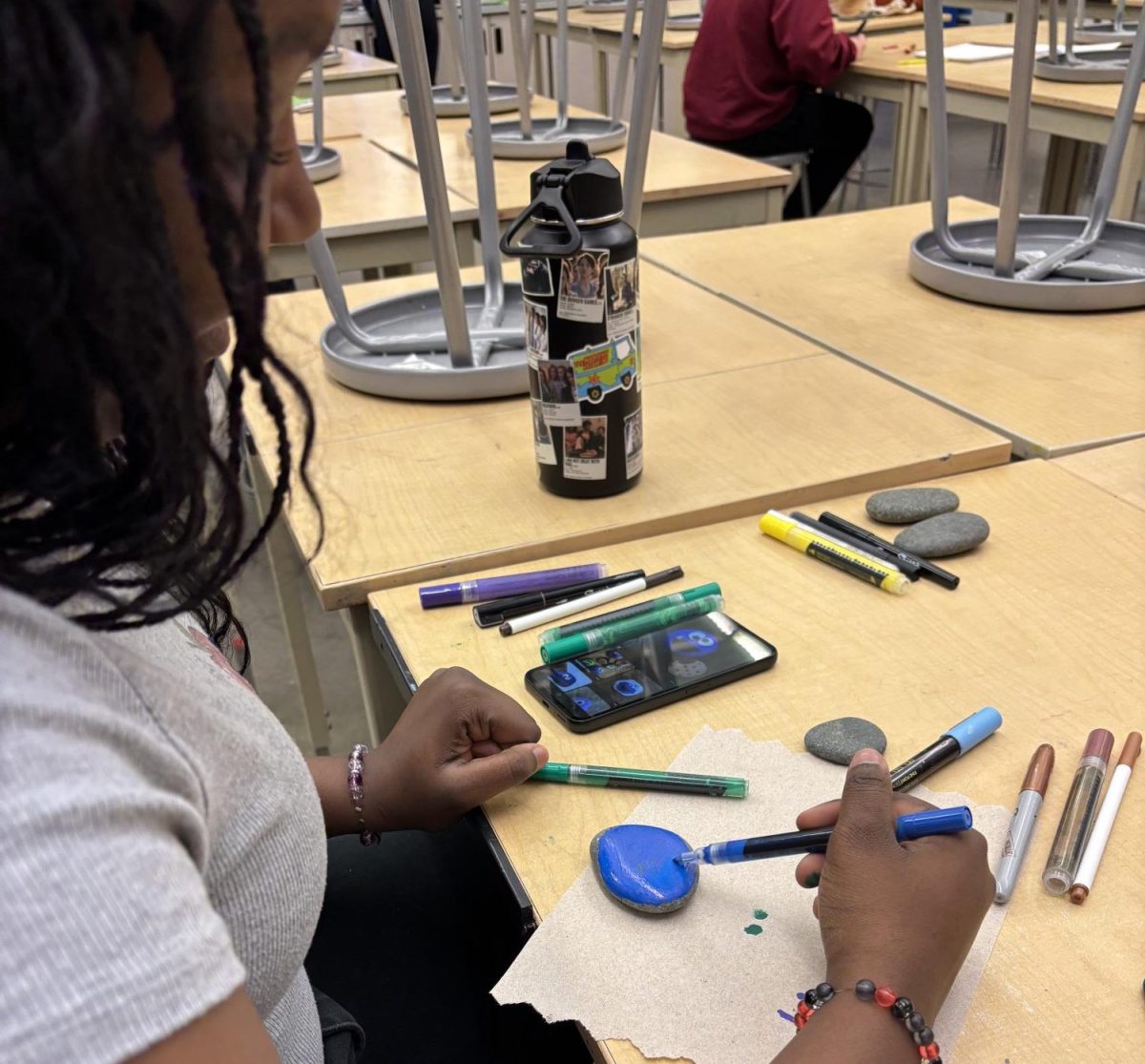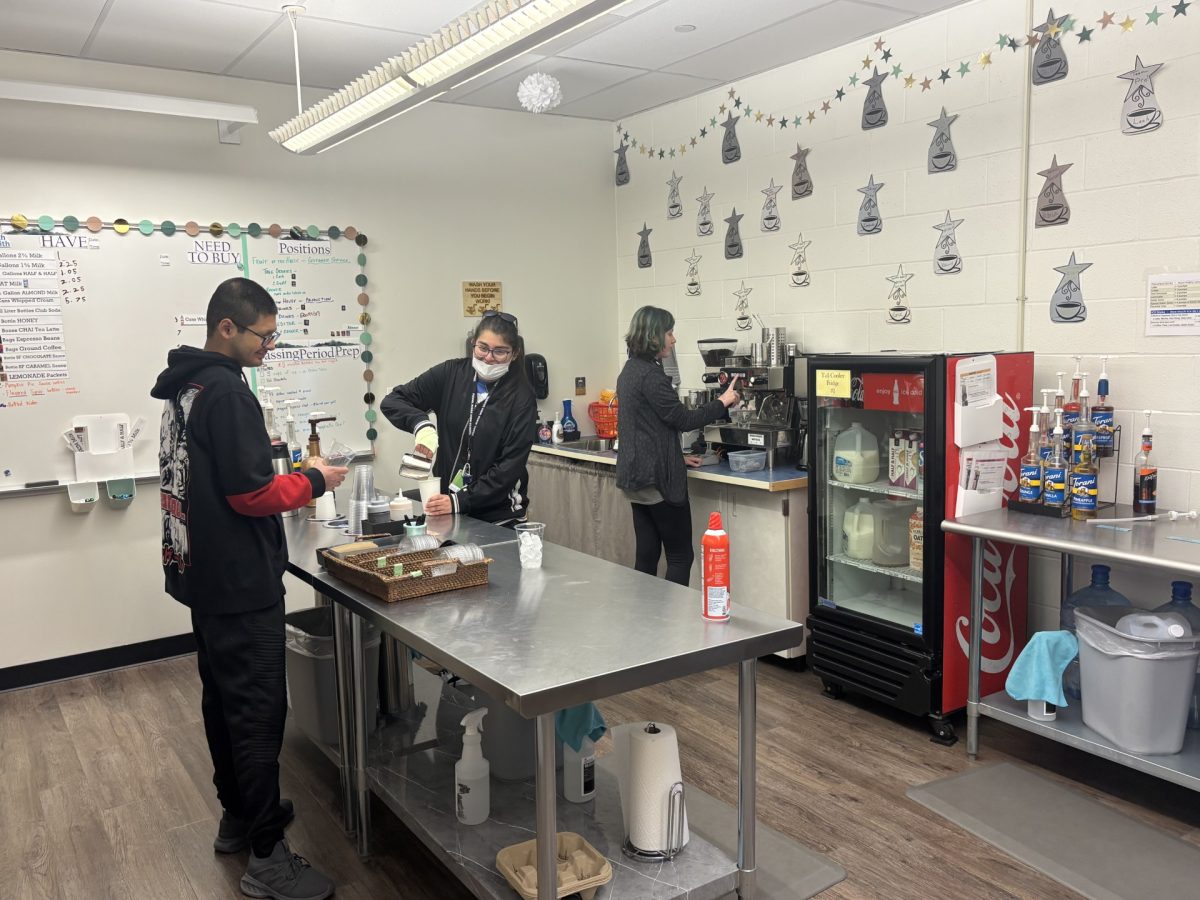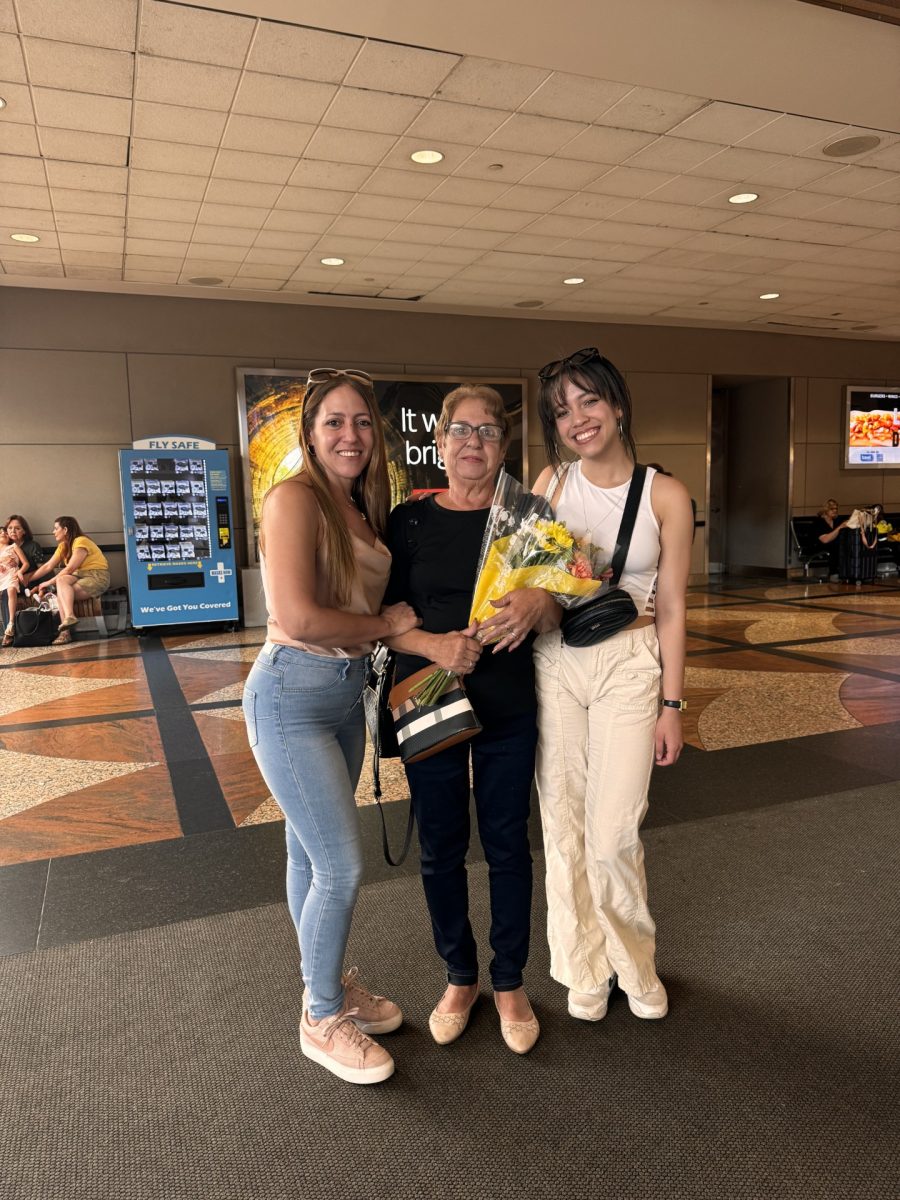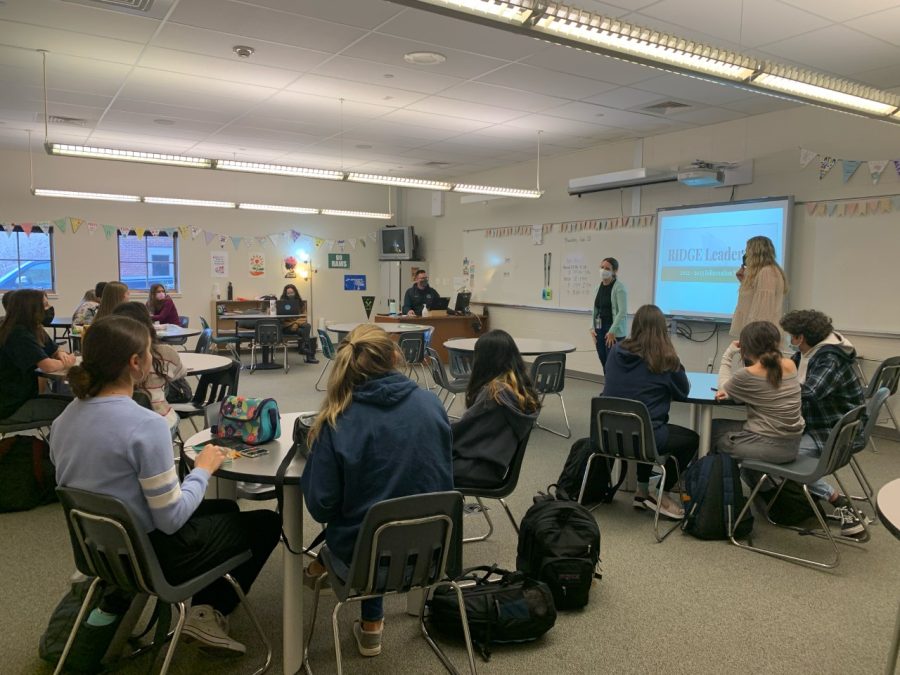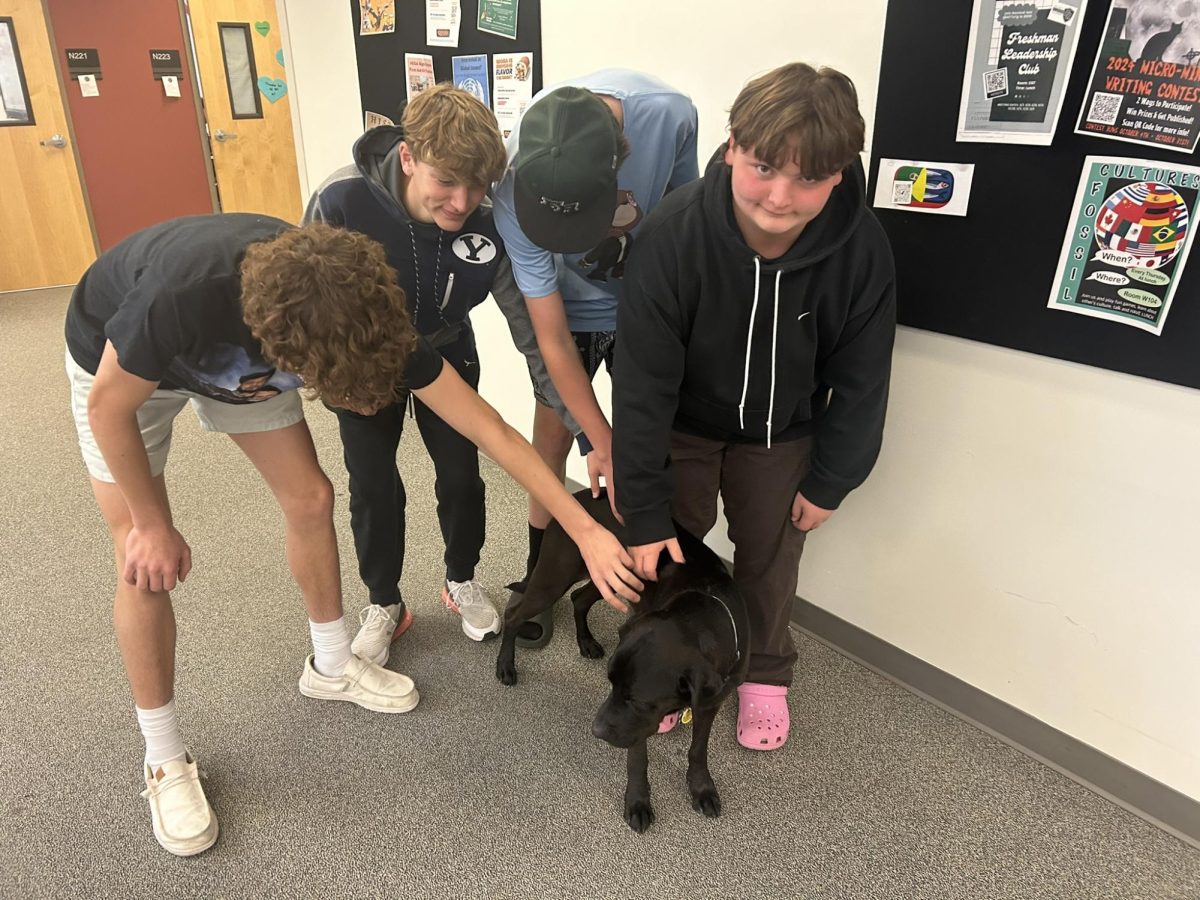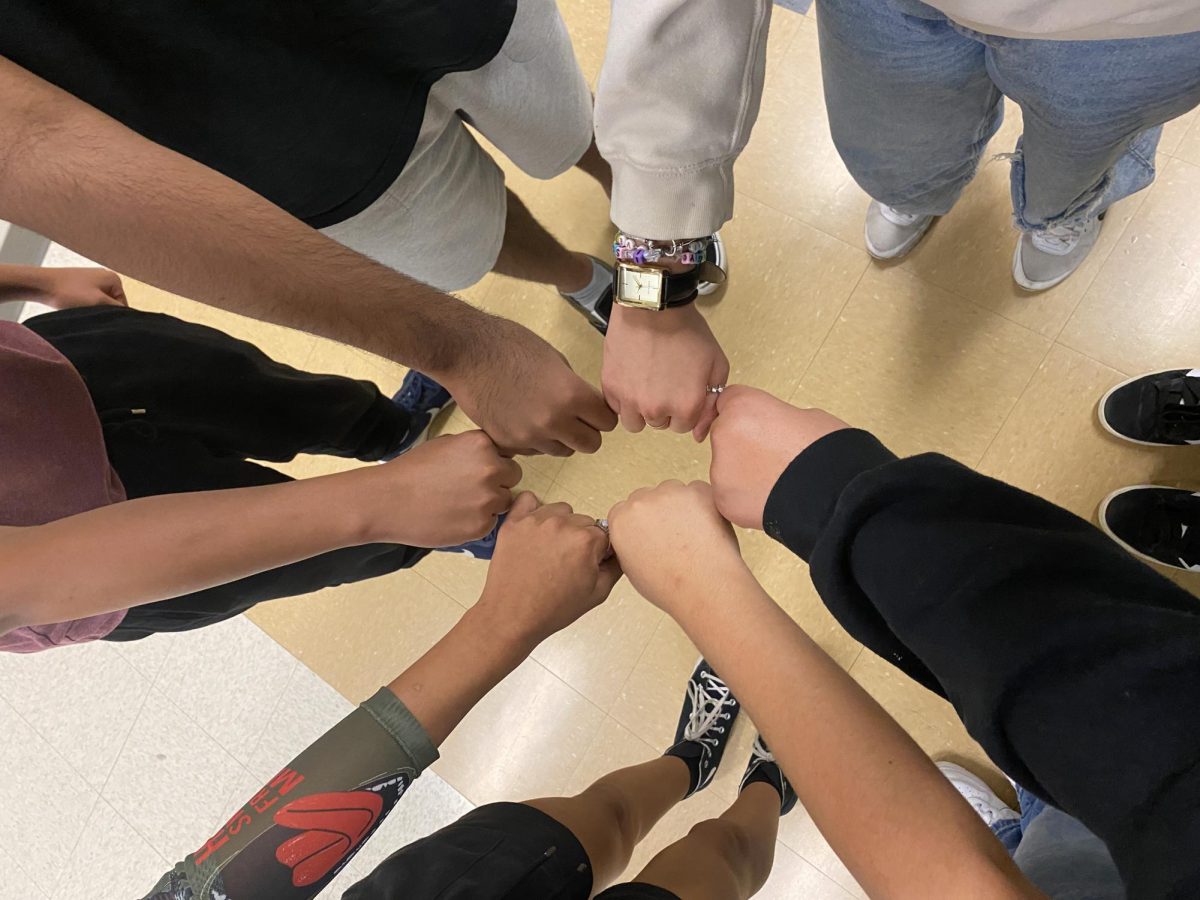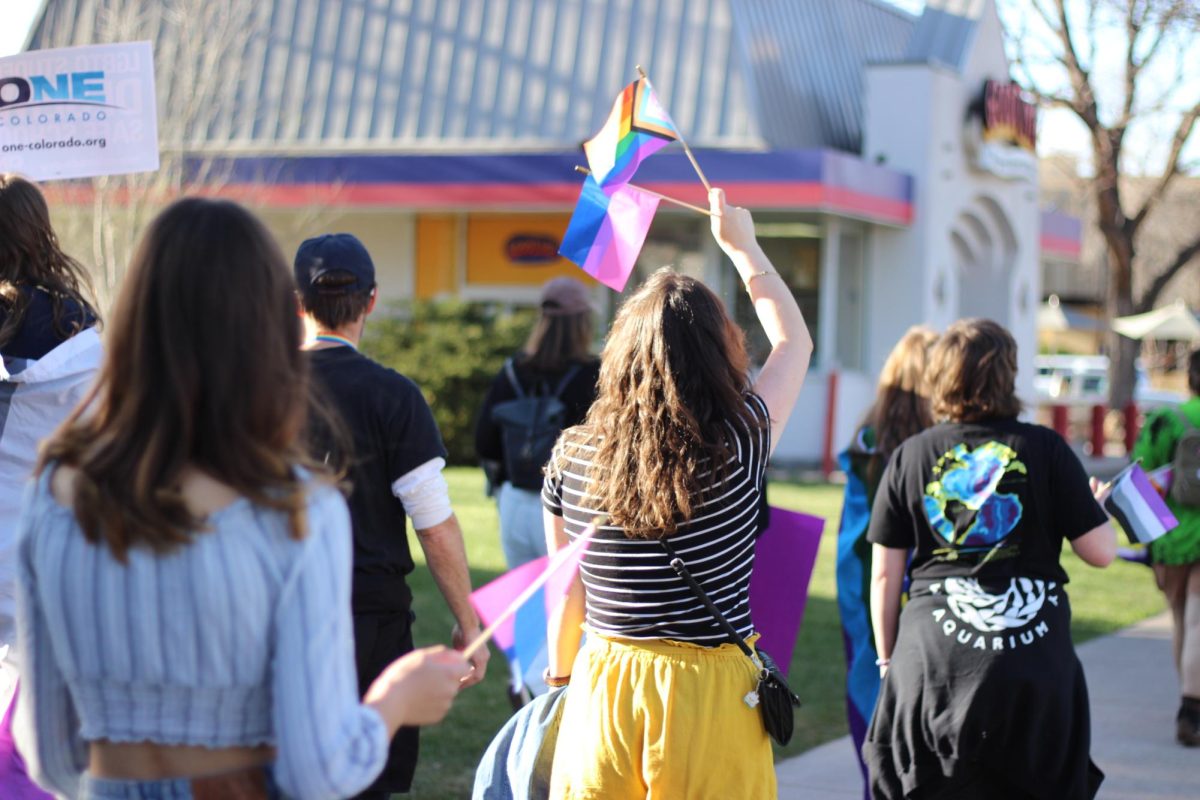Trigger warning: this page contains references to themes of sexual assault/violence, mental health, self-harm, and suicide which some individuals may find distressing.
Sexual assault has always been a problem, constantly seen in the media whether it was the #MeToo movement or organizations surfacing to help such as the National Sexual Violence Resource Center (NSVRC) and the Rape, Abuse & Incest National Network (RAINN). In the United States, sexual assault dates back to when Christopher Columbus colonized the U.S. in 1492. It was a way for men to assert their power over Indigenous women, and over the past 532 years, not much has changed (Tulane University).
“It’s not about sex, or it’s not… really about that,” says counselor and advisor for Ambassadors, Matt Murphy. “It’s about control and power, and I think that for some reason, somebody feels like they don’t have control or power themselves and so they want to control somebody else or have power over somebody else.”
The age group that has the highest risk regarding the issue is ages 12-34, high school in the prime of that range.
Two of the best resources for the students of Fossil Ridge High School is SAVA, otherwise known as the Sexual Assault Victim Assistance, and the class of Ambassadors at Fossil.
“It’s really important that people feel as if this has happened to them, that it’s okay to talk about it and get help so that people can heal,” says Hope Cornelis-Moore, the director of prevention education at SAVA.
The SAVA Center of Northern Colorado provides help and advocacy for those who have dealt with sexual assault while also providing prevention programs, the main goal of the center being to eradicate sexual violence completely.
“We have the power to change the culture and change our norms and hold people accountable, better than we have historically,” Cornelis-Moore emphasizes.
Cornelis-Moore has been with SAVA for the past six and a half years, before that she worked directly with the Poudre School District as the Sexual Assault Resource Team (SART) Peers Program coordinator.
“I am very passionate about prevention education and specifically preventing sexual violence and helping young people to have healthier, safer, and happy relationships,” Cornelis-Moore explains.
She currently oversees all four of the prevention programs in Larimer and Weld County.
At SAVA the staff focus on preventing perpetration rather than people focusing on the need to protect themselves from being victimized; this mindset can lead to people believing that it was their fault that the situation occurred.
“If it happens… in someone’s life, whether that’s someone perpetrates earlier in life or experiences sexual violence, then their risk for experiencing or perpetrating again is higher,” Cornelis-Moore says.
Miscommunication in a situation can potentially result in an assault; the first step to avoid that is consent.
“Consent should be active: clear and ongoing, and then it has to be conscious, sober, alert, so given with full understanding of what both people are consenting to,” Cornelis-Moore explains.
Both people should be receiving a clear indication of a yes, Cornelis-Moore describes it as the agreement “to do the same thing at the same time in the same way with each other.”
Making sure that both parties understand and are on the same page is crucial, especially in this day and age.
Yet it is difficult to eliminate perpetration completely. One of the best ways to reduce chances is for people to watch out for each other, to step up and speak out.
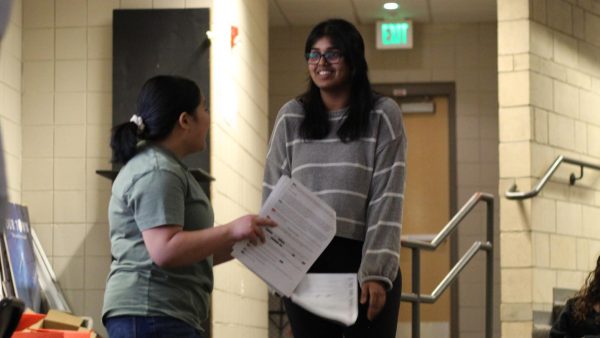
“[It’s important to be] looking out for your friends and kind of having a zero-tolerance policy for friends doing things that might be taking advantage of someone, even making jokes about taking advantage of someone or doing something without a person’s consent,” Cornelis-Moore explains.
Looking out for friends was also a main part of senior Isha Diddi’s [Sexual Assault Resource Team (SART/Time to Talk (TTT) Board Member] most recent presentation: “Stand up for Friendup!”.
The three best ways displayed in her presentation for people to look out for others are to distract, delegate, and direct.
By distracting, a person is focused on turning attention onto themselves, distracting the potential perpetrator from their subject. Delegating is to bring awareness to the situation and get the subject help. Directing, potentially the most useful, is to address the situation head-on and stop it right there and then.
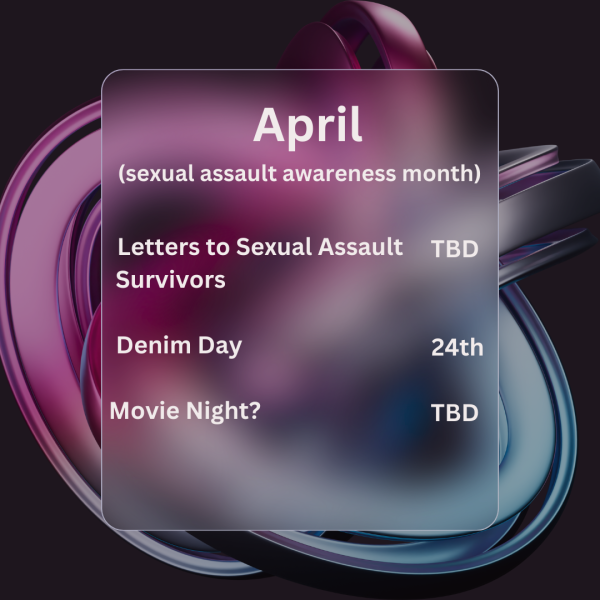
Diddi has more presentations coming throughout the year since she believes this is an important topic for people to talk about.
“It’s crazy how prevalent this [problem] is, but no one is talking about it, and the fact that we aren’t is just perpetuating the problem,” Diddi says. “We can equip students to have the confidence, to have the tools to solve it, to recognize that. Then we can slowly decrease [sexual assault situations] and create more survivor supporter culture.”
She has since created these workshops and partnered with the National Honor Society so when people attend her workshops they also get inside hours for the club.
“Not many people know about [sexual assault], and not many people have the access to know about it, so I wanted to create these workshops,” Diddi explains.
She has a few more lined up for the rest of the year, especially in April which is Sexual Assault Awareness Month, before she graduates.
Diddi gained her title of SART/TTT Board Member by being a part of the Ambassadors program, a class offered at Fossil for students to learn about topics like sexual assault, teen dating violence, mental health, and leadership. The advisors of the class are Murphy and first-year advisor Hailey Swanbom.
Although students have only known Ambassadors to be a class, twelve years ago it was only a club. There failed to be enough time for them to set up presentations and trainings, so the Ambassadors at the time set up a proposal and the administration team approved it. Since then, Ambassadors has been a class.
“The Ambassadors themselves learn things, but then they go out and they teach their peers about them as well,” Murphy explains.
The Ambassadors, no matter how long they have been a part of the class, undergo a training each year.
The first year, they learn how survivors feel, societal culture and biases regarding the issue, and specific cases. The second year, they learn about the legal side of sexual violence cases, perpetrator tactics, and law involvement. Then the third year they talk to a SANE nurse (someone who administers a legal exam to prove infiltration in a court case) and learn about the Brock Turner case.
“Ambassadors… are safe people, safe peers for a student to talk with and know that they’re going to be supported, and can get them to support and get them to the resources that they need,” Murphy says.
The Ambassadors present to several health classes at Fossil, feeder middle schools, and some elementary schools. These presentations range based on the presentee’s age, the topics ranging from sexual assault prevention to leadership.
Unfortunately, they do not present to every class at Fossil, “It’s hard asking teachers to give up class time to talk.. and to give us time to do the presentations,” Murphy says.
They are always looking to expand the classes they present to, but for now, they will continue targeting classes like Teen Choices, Interpersonal Relationships, Sabercat 101, and senior-level classes so seniors can carry this information with them going into college to hopefully prevent any assault in their later years.
“If something happens to you and you are sexually harassed or assaulted, I think the main thing to remember is that it’s not your fault. It’s the person who assaulted you, it’s their fault,” Murphy says.
In an uncomfortable situation, people should not worry about acting nice or friendly.
“Don’t worry about being rude or mean if you’re like, ‘Hey, I gotta go’ or, ‘Oh, hey, something came up, I need to get out of here’,” Murphy explains.
As Cornelis-Moore advised, it is important to look out for their friends and people around them.
“If a student wants to go talk to a peer about an issue or something that’s going on, and doesn’t want to talk to an adult, [the peer support room is] a safe place where they can go and talk to that Ambassador,” Murphy says.
If students are not given or have not seen a presentation and want more information regarding sexual assault, they can visit the peer support room at Fossil. The student who was a large component in starting the room is Zaelyn Harding, mental health and peer support head of Ambassadors.
“This room is for students to come in whenever they’re overwhelmed, or just need a minute to cool down or talk to a peer,” Harding says.
In the past, people could sign up to talk to a peer but Ambassadors have never had a place to meet, so the process has been ineffective and for the past ten years they have been wanting to create this space.
The room is open only Tuesday and Friday during third or fourth period, but “we’re hoping to open it up more near the end of the year,” Harding says.
“[I wanted to] spread the word about mental health to anyone… so this is kind of how I wanted to get involved,” Harding explains.
Harding is also involved in softball and unfortunately lost her teammate to suicide, that being one of the reasons she was so involved in setting up a space where students could come to talk to a fellow peer.
Unlike the teachers and counselors at Fossil, the Ambassadors are not mandated reporters.
“We’ll keep it all confidential unless we’re actually worried, then we will take you to go talk to [an adult],” Harding says.
The room has only been available for two full weeks, therefore it is not attracting as many students as Ambassadors would like, but both Harding and Murphy suspect it will start catching on at the end of this year, potentially next year.
“It’s really just a safe place for a student to come if they’re just needing a little break or want to talk to a peer about really anything that’s going on with them,” Murphy says.
Ambassadors receive SART, SAVA, and training “from outside organizations like Three Hopeful Hearts to talk about grief training,” explains Harding.
Before the year started, all the Ambassadors and peer leaders of each school met to do a training, and part of that was an “Introduction to Grief” training. Afterward, Swanbom asked the presenter to come back and continue training for the class.
This grief training had never been done this thoroughly but Swanbom, despite this being her first year, has already tremendously helped the Ambassadors learn more and become more effective at helping their peers.
“I think our culture doesn’t always know what to do with grief, or how to separate the grieving process, so I thought it was important in that way to be more informed and have some actual action steps on what we can do,” explains Swanbom.
This has helped the Ambassadors to sharpen their listening and communication skills when helping others, especially in the peer support room, but students can also turn to their counselors in time of need.
“My advice would be to not be afraid to go to a trusted adult, to get some support, and help take care of yourself,” says Swanbom.
The Ambassadors and SAVA are here to help people if they have experienced sexual assault, want to stop it, or even just want to know more.
“Know and respect your own bodily autonomy that you have a right to decide how you are touched and what sort of physical or sexual acts you engage in,” says Cornelis-Moore. “If you have experienced sexual violence, know that you’re not alone, and there are places that can help and that’s SAVA Center.”
Sexual Assault Resources:
SAVA – Sexual Assault Victim Assistance (Fort Collins/Loveland/Greeley)
Provides support for survivors of sexual violence and their families, including community-based advocacy services, individual and group therapy (ages 3+) and prevention education programming.
Website: https://savacenter.org/
Crisis Line: (970) 472-4200
(If you plan on going to CSU) CSU WOMEN & GENDER ADVOCACY CENTER
Provides confidential advocacy to CSU students navigating the academic, legal, reporting, medical, and emotional aftermath of interpersonal violence. They strive to be conscious and inclusive at serving survivors and communities impacted by social and systemic oppression.
Website: https://wgac.colostate.edu/
Crisis Line: (970) 492-4242
Main Line: 970-491-6384
CHILDSAFE
Provide comprehensive treatment to victims of child abuse (primarily sexual abuse), and their non-offending family members, and adult survivors of childhood abuse. Also provide group therapy, neurofeedback, and parenting classes. No family is turned away due to lack of financial resources.
Website: https://www.childsafecolorado.org/
Main Line: (970) 472-4133
RAINN
National hotline with trained staff members. Support for finding local health care facilities for forensic exams. Provides referrals for long-term support in the victim’s area. Provides information about laws in the victim’s area and basic information regarding medical concerns.
Hotline 800.656.4673 (HOPE)




